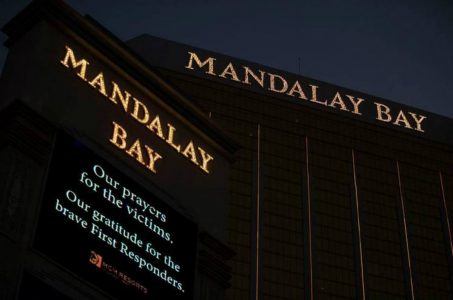Philippine Casinos Will Soon Be Forced to Abide by Anti-Money Laundering Laws
Posted on: May 26, 2017, 03:00h.
Last updated on: May 26, 2017, 02:34h.
Philippine casinos currently operate without much financial oversight from the federal government, but the odds of that changing in the not too distant future seem strong.

The Philippine Senate is expected to soon pass a measure that designates gambling venues as institutions covered by the country’s Anti-Money Laundering Act of 2001. Should the legislation pass the upper chamber and find similar majority support in the House of Representatives, President Rodrigo Duterte would sign the statute in his ongoing efforts to rid the country of corruption and crime.
Senator Ralph Recto, who introduced the amendment to add casinos under the anti-money laundering oversight, says the 2001 legal framework is deficient, and that casinos should be subjected to the Philippines Financial Action Task Force (FATF).
The legal implementation would be that cashiers at land-based casinos, and online payment processors facilitating deposits and withdrawals for internet gambling sites, would need to report large or suspicious transactions to the federal government.
Since Duterte took the presidency last June, he’s been on a mission to eradicate the drug trade and other criminal syndicates, including underground gambling rings, from the Philippines. Though he’s lessened his opposition to legal gambling in recent months, he remains adamant that the proper taxes be paid to Manila.
US Leads by Example
The efforts to include casino and online gambling accounts under the country’s anti-money laundering protocols takes a page out of the US’ playbook.
In America, the Bank Secrecy Act (BSA), which dates back to 1970, requires financial institutions to aid the US government in detecting and preventing money laundering. Casinos were added to the law’s oversight in 1996.
When a gambler transacts $10,000 or more in a single 24-hour period, casinos in the US are required to file a Currency Transaction Report. In addition, if cages suspect fraudulent or criminal behavior, they are legally bound to complete a Suspicious Activity Report.
Though casinos didn’t have the best reputation at adhering to the BSA in the years following their inclusion, the industry has recently received praise from the federal government for taking “significant steps” to block money laundering.
Blue Collar Gamblers Exempt
While the US says casinos today are better deterring the illicit flow of dirty money, the Philippines financial regulatory outline will allow many checks and balances to go unchecked. That’s because the Southeast Asian country’s anti-money regulation requires only transactions of P5 million ($100,000 USD) or more to be reported.
The extremely high threshold means the vast majority of casino transactions will continue to be completed without supervision. But it does provide some sort of defense against another major cybercrime.
In February of 2016, millions of dollars obtained through a cyber heist of the Bangladesh account at the US Federal Reserve was laundered through two casinos in the Philippines. Hackers had scheduled nearly $1 billion in withdrawals from the Manhattan-held banking account, but a spelling error stopped the payments, but not before $81 million was obtained.
About $38 million has since been recovered by international law enforcement agencies. The crooks behind the seizure remain unknown and at large.
Related News Articles
Most Popular
Mirage Las Vegas Demolition to Start Next Week, Atrium a Goner
Where All the Mirage Relics Will Go
Most Commented
-
Bally’s Facing Five Months of Daily Demolition for Chicago Casino
— June 18, 2024 — 12 Comments -
Chicago Pension Mess Highlights Need for Bally’s Casino
— July 2, 2024 — 5 Comments
















No comments yet